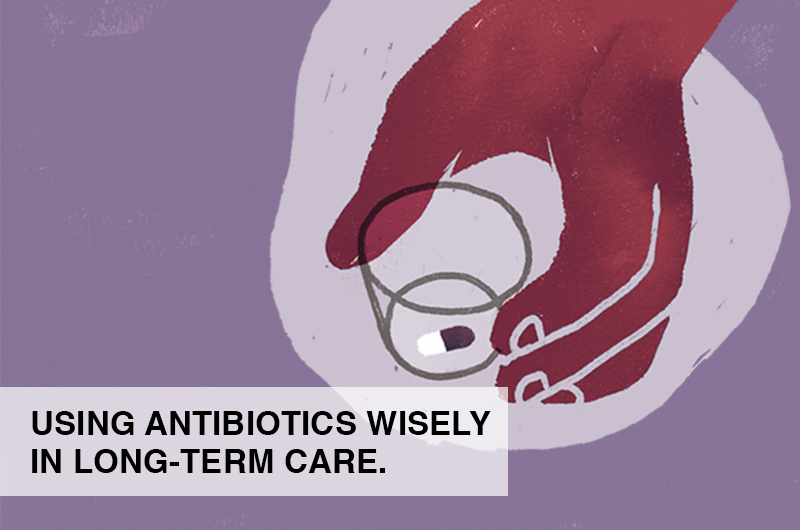Dr. Andrea Moser & Dr. Patrick Quail
Mar 5, 2020 - Profiles
Q&A with Drs Andrea Moser & Patrick Quail on urinary tract infections in long-term care.
Dr. Andrea Moser & Dr. Patrick Quail
Mar 5, 2020 - Profiles
Q&A with Drs Andrea Moser & Patrick Quail on urinary tract infections in long-term care.

What shared decision making strategies or tools have you implemented in your practice around this recommendation? (Dr Moser)
At the Baycrest long-term care (LTC) home in North York, Ont, the standard practice is that urine is not collected before a discussion with the attending physician. If there is an observed change in behaviour or symptoms, such as concentrated urine, we work together to identify what the cause could be, including but not limited to a UTI. Collecting a urine sample for the purpose of diagnosing a UTI without adequate symptoms starts a cascade of testing and treatment that might not identify the root cause of that resident’s discomfort.
To help with the diagnosis and treatment of UTIs in LTC, the Using Antibiotics Wisely campaign, which is supported by various organizations, has introduced a Reflect Before You Collect poster, along with a handout on practice change recommendations that aim to reduce unnecessary antibiotic use for asymptomatic bacteriuria in LTC. The recommendations definitively rule in or out what constitutes sending a urine culture, reducing the ambiguity in test ordering. They also detail how to manage urine cultures positive for bacteria and prescribe antibiotics appropriately, should they be necessary.
What makes shared decision making around this topic challenging or rewarding? (Drs Moser and Quail)
It can be difficult to say to families, “A urine culture has come back positive but we are not going to give your loved one antibiotics.” Studies have shown that up to 50% of older adults in LTC are colonized for bacteria but do not have an actual UTI. This is why we try to avoid collecting urine in the first place if we are not certain a UTI is the cause of a change in a resident’s health status.
Families can find changes in their loved one’s status alarming, and they are sometimes eager to suggest a linear relationship with infection of the urinary tract. However, when we only look for a UTI in these cases, we could be missing the real cause of a status change (eg, pneumonia, constipation, or pain). While UTI is of course always a strong possibility, we cannot consider this diagnosis in isolation. We need to do a thorough assessment and delirium workup to ensure we are capturing all potential root causes. When families are a part of this more comprehensive assessment, they know we are acknowledging their concerns by monitoring the patient closely with regular measurement of vital signs and clinical reevaluation. In communicating our findings, families see that the care team is doing something. Explaining that we are not ordering a urine culture at this time becomes an easier message to understand.
Why is shared decision making around this specific Choosing Wisely recommendation or clinical topic essential to you? (Dr Quail)
In the past 10 years there has been a shift in LTC to better understand responsive behaviour patterns in advanced dementia. It behooves us all to think about underlying behaviour changes more critically. We are moving toward a model of care that is more patient-centred in how we meet individual care needs. I see the antibiotic LTC practice change recommendations as an extension of this movement. We want to ensure we are prescribing antibiotics only when they are most appropriate.
From a population health perspective, the prescribing of unnecessary antibiotics in LTC increases the risk of considerable antimicrobial resistance. In a residence with frail seniors susceptible to infections, this can be very harmful and lead to serious complications. We need to work collaboratively in LTC to ensure the antibiotics we are prescribing are helping our residents and the communities we serve.
Notes
This article is eligible for Mainpro+ certified Self-Learning credits. To earn credits, go to www.cfp.ca and click on the Mainpro+ link.
This article first appeared in Canadian Family Physician. The interview was prepared by Dr Kimberly Wintemute, Primary Care Co-Lead, and Hayley Thompson, Project Manager, for Choosing Wisely Canada.
